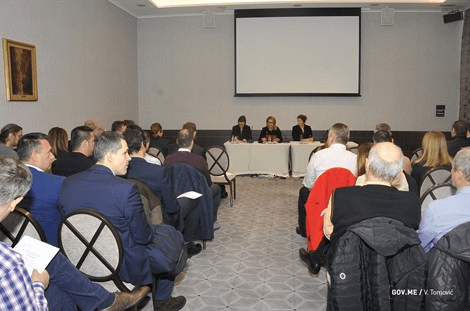03 December 2018 - Cybersecurity has become an essential component of modern society. Critical societal infrastructure, the financial sector, governmental services, the security sector, schools, and hospitals are increasingly and irreversibly dependent on interconnectivity and the global network. Risks accompany the merits of the open Internet.
Cyberspace is an intrinsic part of the development of any country. Strong information and cyber capacity are crucial for the region to progress and develop in the economic, political and social spheres. Montenegro has advanced fast in the cybersecurity area since 2010 when the umbrella piece of legislation – Law on Information Security - was adopted, along with the Regulation on Information Security Measures. The country has an official university master-level program on cybersecurity policy, developed and delivered by the Donja Gorica University in Podgorica, which gives a unique mix of technical and policy-based knowledge on a variety of cybersecurity issues. The Donja Gorica University is also a partner in the above mentioned EU-funded TEMPUS project.
On December 3, Minister of Public Administration of Montenegro, Suzana Pribilović and UK Ambassador to Montenegro Alison Camp opened a roundtable dedicated to cybersecurity in Podgorica, sponsored by the Ministry of Public Administration and the UK Embassy, in cooperation with the Geneva Centre for the Democratic Control of Armed Forces (DCAF).

Minister Pribilović thanked the UK Government for the support provided, hopeful that the project of support in the field of cybersecurity will continue in the time to come. She said that one of the objectives of the Cyber Security Strategy for 2018-2020 is to carry out as many cyber exercises, training and simulations as possible, with the aim of strengthening the capacities for cyber defence. She recalled that the National CIRT (Computer Incident Response Team) successfully participated in resolving numerous incidents in the past period, which in many cases demanded cooperation, information exchange and coordination of activities with other relevant organisations, institutions and CIRT teams. Resolving such incidents resulted in developing contacts and collaboration with partners at regional and international levels, creating CIRT team at the local level and establishing cooperation with the private sector.
The national CIRT is also very active in promoting the culture of being safe in cyberspace. In 2015, it developed the document titled “Guidelines for Security and Protection of Information in Cyberspace”. In cooperation with the ITU, CIRT.me organised a cyber-drill in September 2015 for CIRT/CERTs from Europe. The drill was attended by more than 50 participants from Montenegro and other countries. Also, CIRT.me actively participates in the overarching TEMPUS project related to cybersecurity education in Montenegro.
During the roundtable meeting, Ambassador Camp said that the United Kingdom and its partners share concerns about the scale and complexity of cyber-attacks.
Camp explained that the only effective way to deal with these common threats is joint action. She added that the ability to deliver successful cybersecurity relies on the strength of the partnerships we create: partnerships between the government and its agencies, and between the public and private sectors, including academia and civil society. According to her words, Britain will continue to strengthen the shared vision of an open, peaceful and secure digital world based on the rule of law. Camp also pointed out that cybersecurity is a priority of bilateral relations between Great Britain and Montenegro, as it concerns the security and prosperity of the two countries.
The roundtable aims to increase the awareness of decision-makers and other relevant subjects on the growing threat of cyber-attacks. The national roundtable organized by DCAF is the first of the three annual roundtables where representatives and experts for cybersecurity are participating in the project "Cybersecurity in the Western Balkans."








